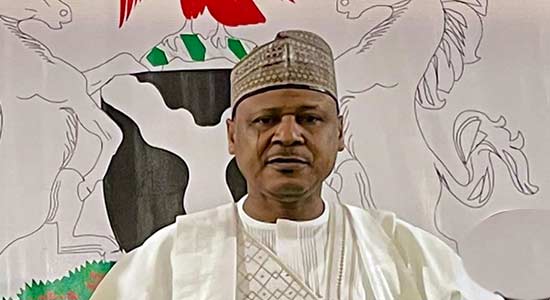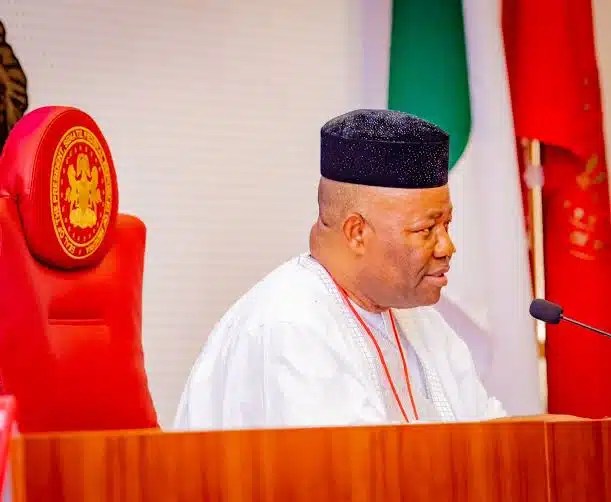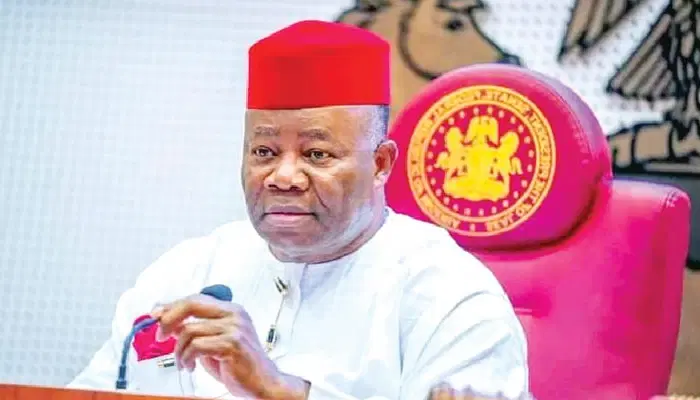- Gov. Eno says current economic challenges not President’s creation, urges national support
Uyo, Akwa Ibom & Abuja – Nigeria’s Minister of Information and National Orientation, Mohammed Idris, stated yesterday that President Bola Tinubu’s economic reforms, despite causing initial hardship, are now producing tangible results and laying the groundwork for the nation’s economic revival under the “Renewed Hope Agenda”. This comes as Akwa Ibom State Governor Umo Eno emphasized that Nigeria’s economic challenges existed before the current administration and called for national support for the President to navigate the difficult period.
Speaking at the 2025 Nigeria Public Relations Week in Uyo, Minister Idris asserted that the administration’s policy direction had successfully repositioned Nigeria for significant economic reforms that are yielding visible results across critical sectors.
“Permit me to posit, with every iota of conviction, that the Renewed Hope Agenda is steadfastly paving the way for Nigeria’s economic renaissance,” Idris declared.
He traced the economic reset to the very first day of the administration with the removal of the fuel subsidy and the unification of exchange rates, describing these bold moves as the bedrock of the nation’s economic transition. While acknowledging that these reforms initially triggered hardship, he stated they were now “starting to yield measurable outcomes” through improvements such as “improved exchange rate stability, increased state revenues, revived local oil refining, and a strengthened fiscal position.”
Looking ahead to the administration’s second anniversary, the minister highlighted a period of “unprecedented investment” across key areas including infrastructure, agriculture, security, and human capital.
He detailed landmark developments, including:
- N2.5 trillion being invested in road infrastructure in 2025, described as the highest in the country’s history.
- Creation of new ministries for regional development and livestock to accelerate regional economic growth and unlock billions in agricultural opportunities.
- The launch of the Nigerian Education Loan Fund (NELFund), which has already supported over 300,000 Nigerian students with tuition and upkeep.
- Earmarking N200 billion for economic assistance to nano businesses (very small outfits typically run by one or two people).
- Direct investment exceeding $450 million in Compressed Natural Gas (CNG) infrastructure under the Presidential CNG Initiative.
- Establishment of CreditCorp, designed to provide Nigerians access to credit for essential needs like housing and healthcare.
Idris further elaborated on infrastructure projects, stating, “Today, Nigeria is a vast construction site, with over N2.5 trillion worth of road infrastructure projects approved this year alone, the highest ever in Nigeria’s history.” He mentioned signature projects linking cities, such as the Lagos-Calabar and Badagry-Sokoto superhighways, alongside works across the country, including the revived Port Harcourt and Warri refineries, the N80 billion reconstruction of the Alau Dam in Borno, and progress on the Kano-Kaduna Standard Gauge Railway Line. He noted that no part of Nigeria had been left behind, leading President Tinubu to be described as ‘The Road Master’.
On macroeconomic indicators, the minister pointed to the Consumer Price Index (CPI) for April 2024 (corrected from 2025 as likely typo), released by the National Bureau of Statistics, which showed headline inflation at 23.71 per cent, a decrease of 0.52 per cent from the 24.23 per cent recorded in March 2024. He attributed these improvements to the President’s “deliberate policy interventions” that are “well-nurtured and paying off.”
Idris urged public relations professionals to take their place as central agents of national renewal by helping in shaping and projecting Nigeria’s “rising economic profile” to the world. He suggested using “persuasive, values-driven and inclusive communication mechanisms” to mobilize the population towards the “reawakening of an economic giant.”
He presented positive statistics as “stories waiting to be told effectively, professionally, and patriotically,” including “over $50 billion in new foreign direct investment commitments, diaspora remittances at $21.9 billion, and Nollywood contributing over N730 billion to GDP.”
Finally, Idris reiterated his ministry’s commitment to strategic and coordinated national messaging through the newly conceived National Strategic Communication Framework (NSCF).
Governor Eno Supports Tinubu, Says Problems Not His Creation
In a related development, Akwa Ibom State Governor Umo Eno offered his perspective, stating firmly that Nigeria’s current economic woes were not caused by President Tinubu. Speaking to reporters on Tuesday after a meeting with Vice President Kashim Shettima at the State House, Abuja, Governor Eno argued that the challenges existed before the current administration and that the President deserved national support to steer the country through difficult times.
Governor Eno described President Tinubu’s first two years in office as “wonderful” and marked by “determined efforts to address inherited challenges.” He was quoted as saying, “President Tinubu didn’t create the problems we are in right now. For me, I believe he is doing his best, and he should be supported to finish strong.”
He also highlighted progress in Akwa Ibom under his own administration, nearing the two-year mark, citing achievements across key sectors including education, healthcare, road infrastructure, and rural development. He stated, “When you come to Akwa Ibom, you’ll find we are working across the board—from schools to hospitals, roads, and markets. We are delivering tangible results.”
Looking ahead, Governor Eno said that while the first phase of his administration focused on grassroots development, the next two years would usher in a wave of “super infrastructure” projects aimed at positioning Akwa Ibom as an “economic and tourist hub.”




